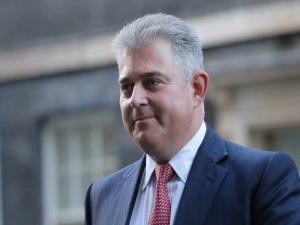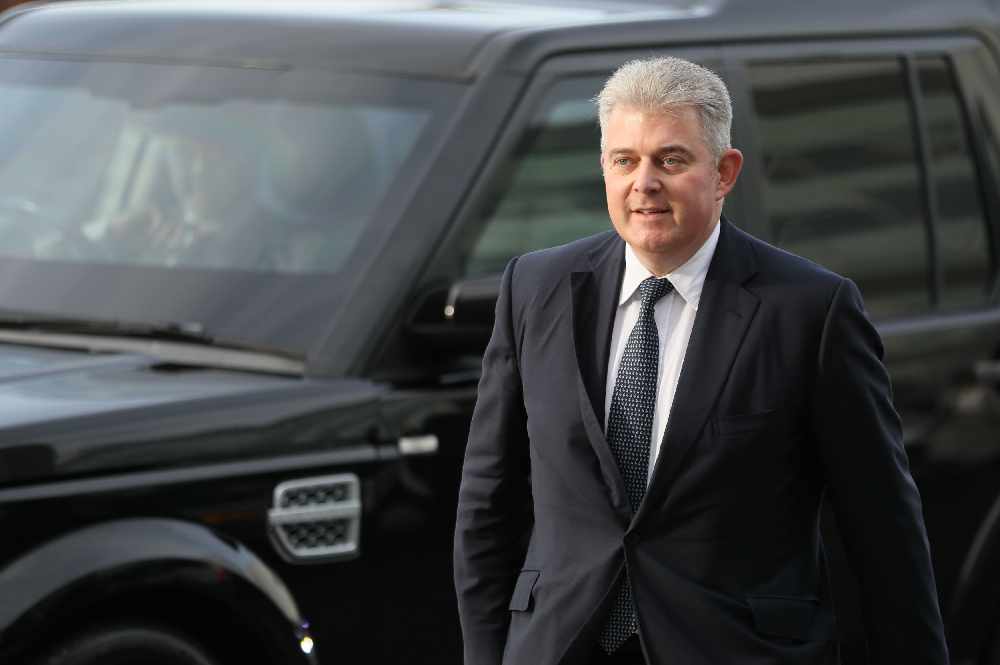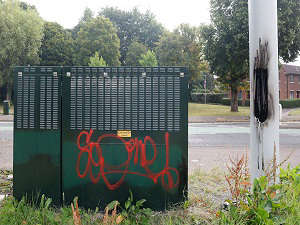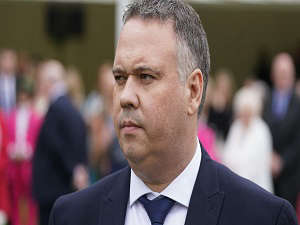
Q Radio News/PA
A United Nations human rights official said that controversial proposals to deal with the legacy of the Troubles in Northern Ireland would have China and Russia “rubbing their hands with glee”, MLAs have been told.
Andrew Sloan, chief executive at the Commission for Victims and Survivors in Northern Ireland, said the remark was made during meetings about the plans announced by Northern Ireland Secretary Brandon Lewis to end all prosecutions for Troubles-related offences.
Also appearing before the Stormont Executive Office committee on Wednesday was the widow of a Ulster Defence Regiment (UDR) member who was murdered by the IRA. She said that the legacy proposals are an “insult to victims and survivors”.
Mr Sloan told MLAs that the measures set out by the government “signalled a change in direction” for their approach to legacy mechanisms.
He said: “The commission and forum and many other victims and survivors organisations have shared with the UK Government the distressing human impact on the mental health and emotional wellbeing on those affected by such proposals. It is disappointing that this is not enough to influence the direction of travel.
“The commission and forum have met with members of both the US ad hoc committee for the protection of the Belfast/Good Friday Agreement and the United Nations special rapporteur on the promotion and protection of human rights and fundamental freedoms while encountering terrorism.
“In recent weeks we have seen that members of the US Congress have written to the UK Prime Minister calling for the government to reconsider its legacy proposals.
“The closure of avenues represents a sweeping denial of the rights of families and presents a real risk of seriously damaging our focus on reconciliation.”
He added: “In our engagement with the UN special rapporteur, her words were that ‘China and Russia are rubbing their hands with glee’ when they watch what is going on in the UK in relation to a proposed amnesty in Northern Ireland.
“Because it is something that they have been criticised for for many years, and now the UK, who is held out to be one of the best western democracies, is doing exactly the same thing.”

Secretary of State Brandon Lewis
In July, Mr Lewis announced that he intends to introduce legislation to create a proposed statute of limitations which would end all prosecutions for incidents up to April 1998 and would apply to military veterans as well as ex-paramilitaries.
The proposals, which Prime Minister Mr Johnson said would allow Northern Ireland to “draw a line under the Troubles”, would also end all legacy inquests and civil actions related to the conflict.
But the plan has been heavily criticised by all the main political parties in Northern Ireland as well as the Irish Government, and a range of victims’ and survivors’ groups.
Mary Moreland addressed the committee on behalf of the Victims’ and Survivors’ Forum. She told MLAs that she and her husband had both served in the UDR, and that he was was murdered by the IRA in December 1998.
She said: “Those who advocate drawing a line under the Troubles do not understand that grief and pain are not time-bound.
“Every citizen has the right to access the criminal justice system and to be denied that fundamental right is, in my opinion, immoral. The world is watching.
“The UK parliament is synonymous with democracy and has been a model for parliaments around the world. To deny access to the criminal justice system is an insult to victims and survivors and society as a whole.”
She added: “Should I want an investigation into my husband’s murder, as nobody has been convicted, the proposals effectively deny me that as a veteran and a widow.”
Ms Moreland told MLAs that she had a meeting with Mr Lewis about the proposals, which was “not as productive” as she would have hoped.
When asked to explain, she said: “It appeared that he had other things on his mind when we were speaking with him.
“We all understand he is a busy person, but I think regular meetings would probably educate him and other politicians much better.”


 Arson attacks on Belfast 5G phone masts ‘extremely reckless’, say police
Arson attacks on Belfast 5G phone masts ‘extremely reckless’, say police
 Man dies in hospital after fall from electric scooter
Man dies in hospital after fall from electric scooter
 Slight rise in A* and A grades achieved in A-levels in Northern Ireland
Slight rise in A* and A grades achieved in A-levels in Northern Ireland
 New IRA had planned earlier attack on detective John Caldwell, court told
New IRA had planned earlier attack on detective John Caldwell, court told
 Man in court over murder of Stephen Brannigan and attack on priest in church
Man in court over murder of Stephen Brannigan and attack on priest in church